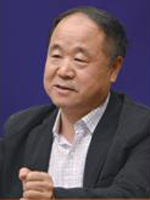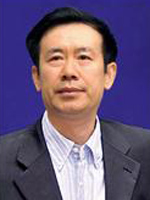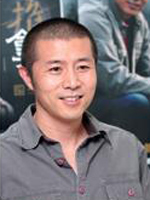|
 |
 |
 |
|
Mo Yan (LI FANGYU) |
Zhang Wei (CFP) |
Bi Feiyu (CFP) |
Five novels with realistic themes were crowned as the winners of the eighth Mao Dun Literature Prize on August 20. "The conscience of realist authors is palpable in these works," said literary critic and member of the judging panel Li Guoping.
The winners were Endless Wanderings by Zhang Wei, Heavenly Mission by Liu Xinglong, Frog by Mo Yan, Massage by Bi Feiyu and A Sentence Is Worth Thousands by Liu Zhenyun.
"The five novels introduce the readers to the progress of civilization in China and reflect common values upheld by modern Chinese, representing the highest achievements of China's literature in recent years," Li said.
While ensuring the prize has a convincing list of laureates, a more "fair and transparent" selection process has endowed the 30-year-old literature award with added credibility this year.
The eponymous prize of Chinese novelist Mao Dun (1896-1981), which was initiated in 1981 with his donation of 250,000 yuan ($39,062.5) after he died, and sponsored by the Chinese Writers Association (CWA), is considered one of China's most prestigious literary prizes and awarded every four years.
The prize has selected 31 novels in its previous selections, but not all of them have stood the test of time and been canonized by both readers and literary criticism circles. Literary Pens Sparkle The eighth Mao Dun Literature Prize rewards accomplished writers
"The most important principle of selection hasn't changed: We value the depth of thinking and the artistic and aesthetic qualities of a novel and the flawless fusion of the two in a work," said Gao Hongbo, deputy head of the judging panel for the eighth prize.
The organizers of the prize did introduce changes to the selection process this year in hopes that results were more in line with the prize's intentions, such as having a greater number of judges in the jury, requiring realname selection and appraisal by judges, and announcing results of each round of voting as they occurred.
Through five rounds of voting by 61 judges made up of literary critics and writers, the five novels emerged from 180 nominated works, which were mostly recommended by provincial associations of writers from a repertoire of 8,000 novels first published on the Chinese mainland between 2007 and 2010.
True to its name
Liu Zhenyun, the only one of the five who won the prize and is not a CWA member, attributed his award to the practice of "democracy" in this year's selection.
While the number of judges was increased from 21 to 61, responsible for the whole process from preliminary evaluation to final selection, all judges were required to sign their names to vote for the sake of transparency and fairness.
It's an important improvement to require real-name voting as it allows judges to express their opinions publicly and effectively reduces votes for acquaintances of jury members, said Hu Ping, a member of the judging panel.
| 